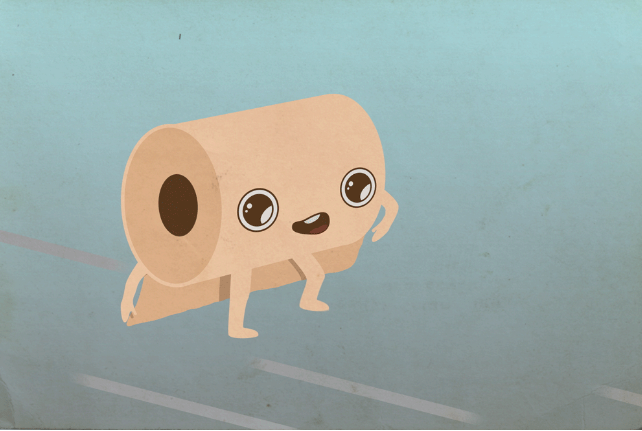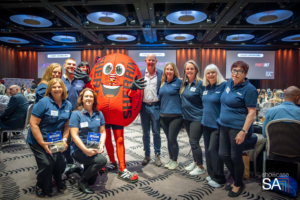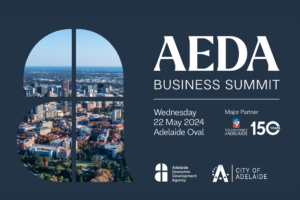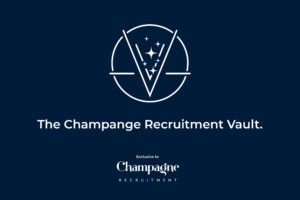
Peter Fuller, Managing Director of Fuller Brand Communication has written an insightful blog post highlighting the opportunity for brands to strengthen amongst crisis.
Wash Your Brands – written by Peter Fuller.
It was Albert Einstein who once opined that: “In the middle of difficulty lies opportunity.”
While “no worries” Australia might have under-estimated the early stages of COVID-19, there’s no doubt that after the last week our governments and health authorities have convinced us that we now have a “difficulty” of Biblical proportions.
But as we heed the advice to wash our hands, we should also ensure we keep washing our brands.
I remember a report by global brand strategy company Kantar Milward Brown during the 2008 GFC, pointing out that brands that halved their investments during a downturn took three to five years to recover to pre-recession levels. But those that invested not only survived – they grew.
“When a brand’s share of voice is greater than its share of market, it is likely to grow its market share in the coming year. Therefore, companies that increase their marketing investment when most others are cutting back have an opportunity to substantially improve the standing of their brands,” the report stated.
As business owners, managers of large organisations and marketing specialists, we don’t just have to look after ourselves and families – we have a vital responsibility to keep the Australian economy healthy and resilient for the benefit of our staff, stakeholders, shareholders and investors.
It’s estimated that the world has experienced around 50 recessions since the late 1700s and more epidemics, pandemics, plagues and occasions of pestilence than many of us have had hot roast dinners.
The good news is that out of each recession and economic challenge comes new businesses, inventions, products and trends that weren’t there before.
Some of the world’s biggest and longest lasting corporations all started during economic downturn: General Electric, Microsoft, Burger King, CNN.
Disney started in the middle of the Depression, it’s main hero Mickey Mouse providing a much-needed distraction for people who were down on their luck. The Apple iPod was the invention that made Steve Jobs a multi-billionaire in 2001, at the same time as the dot-com boom crashed into the rubble of 9/11.
As China moves out of the COVID-19 crisis, a more recent Kantar report shows that the first thing cooped up citizens are doing is dining out, traveling and enjoying out of home entertainment – the very industries hit hardest at the start of the downturn.
Another potential upside is the lasting change of behaviour that disruptions cause. In China, e-commerce purchasing of household goods exploded as people stayed away from supermarkets and shopping malls.
WeChat also grew in importance as a connection point not just for teenagers but their parents and older friends. These new behaviours not only provide opportunity for marketers now – to keep reminding people of your brand – but later when the horizon clears.
Kantar also found there has also been an attitude change that will be long lasting: people will “pay more to buy from socially responsible brands”, “pay more for cleaner environment and services”, “pay more attention to environmental protection and sustainability”.
China is bouncing back with such vigour that it has even announced its Canton Trade Expo will go ahead in April (if you’re OK with two weeks in quarantine).
So, what to do during the next few months? If you don’t have a toilet paper factory or pasta company, where are the opportunities?
Opportunity
As marketing communications specialists, we are focusing firstly on how to turn this change – in the personal, face-to-face way we normally do business – into a positive.
Let’s talk about B2B first.
Conferences are being cancelled, more employees will be working from home and the usual office “meet and greets” will inevitably slow down as we practice social distancing.
But several of our forward-thinking corporate clients have already contacted us to plan, storyboard and shoot videos that provide a similar level of personalised connection – to engage customers, report to shareholders, continue to communicate with staff and offer new information and content.
Now there are videos…and then there are videos.
Our advice to our clients is “stretch yourself” and take the less obvious route. We’re suggesting more lively scripting techniques and inventive ways of using motion graphics and cutaway footage to tell a more engaging story about your business.
Conferences shouldn’t stop just because there is no physical audience. This is the time to lead the way in virtual conferencing, workshopping and webinars.
We are working with clients to add more animated graphics and back story video interviews to excite their customers and colleagues. I particularly like the calm but engaging way Norman Swan is updating the public about coronavirus – sensible, easy to watch and informative.
Even a simple sales presentation needs to be well written, carefully planned and designed professionally so it cuts through the clutter. By rethinking your style of presentation and finally laying PowerPoint to death, you are differentiating yourself from your competitors
This isn’t a COVID-19 flash in the pan. With more and more international speakers expressing their concern about the environmental impact of international travel and cancelling their long-distance commutes, live conferencing, supported by clever presentations and video, will become the new ‘carbon neutral’ normal over the next decade.
Online retail boomtime
The China experience points to the massive boom in online retail and the use of social media. That means consumers in Australia will be spending even more time than usual (if that’s possible) on Google, Facebook, Instagram and Twitter…while considering where they might spend their extra cash.
We often say to clients that if they don’t have a contemporary, mobile friendly website and a digital strategy to draw people to it, then they don’t really exist. So, if you’re a retailer and you’ve been thinking about creating an online store, then you’d better jump to it.
You can compete with the multinational online brands by leveraging what they don’t have – authenticity, personality and local service. For example, rather than using Australia Post or FedEx to handle your deliveries, get your under-utilised shop staff to make personal drop-offs of orders…and build an (arm’s length) relationship at the door.
We’ve noticed enterprising restaurants already doing this, customising their offers, lifting their own digital media spend to beat their competitors and using their bored waiting staff to make direct home deliveries. If you’ve got an old Lambretta or VW Beetle in the shed, why give your profits to Uber Eats or Deliveroo?
Most consumers will be pleased to support your small, local business and help to keep your staff in business if you tell them about your plan and treat them well. Facebook is already alive with travel cancellation stories – which companies have been helpful, had flexible policies, valued their customers and which have been difficult, rude, restrictive.
Make sure you also invest in honest, open communication distributed through the right channels. For example, an engaging electronic direct mail (EDM) newsletter will go a long way to nurture connections, share positive stories and build future sales.
That’s what we mean by keeping your brand clean for the future.
Online grocery shopping will also boom during this eat-at-home era, so supermarkets should be considering more engaging online promotions with video cooking demonstrations (featuring real people, not celebrity chefs), making nutritional dishes from pre-prepared cooking packs and common pantry items. In a week or so the nation will be over spaghetti bolognaise and tuna mornay!
It’s also quite likely that as people are staying home and eating-in, they will look to more beer and wine home delivery. The big chains will jump on this, but it is an opportunity for local wineries and brewers to leverage their direct channels and provide a personalised back-of-the ute delivery service to grow loyalty. We’re not aware of any licensing laws that prevent a winery fulfilling a wine club order on the same day.
Gardening, plumbing and electrical businesses should also use this time as an opportunity to remind homeowners to upgrade their most important asset using the $20,000 they would have spent travelling to Wuhan or Milan.
The long overdue paint job, the new ensuite, the renovated vegetable garden are investments in the future – but you can’t expect consumers to think about this unless you tell them with a Facebook marketing campaign or Google SEO strategy.
The bottom line is that necessity is the mother of invention during tough times, and it will be the entrepreneurial and energetic ‘brand washers’ who will last the ‘social’ distance.



